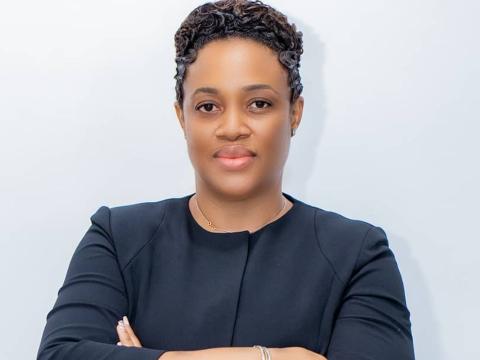By Mabinty M. Kamara
Arguing against Proportional Representation (PR) as the best electoral system for true democracy and national cohesion in Sierra Leone, lawyer Fatmata Sorie has affirmed that changing the electoral system has little or nothing in achieving true democracy and national cohesion, if government systems and structures were not fixed.
Advancing her points against the motion at a debate held by Sierraeye Magazine and the Institute for Legal Research and Justice (ILARJ) last Friday at the Lagoonda hotel in Freetown, Lawyer Sorie described the call for a PR system as a scapegoat for collectively failing to address the ills of the society, noting that without adhering to the principles of democracy, no system will save the country from the grips of the current political, tribal and regional divides.
“We have failed to examine the cause of those tensions. Hence, introducing a PR system will further exacerbate the situation. Changing the electoral system will not save us unless we ensure inclusive politics but for now, some members of the society feel they do not belong. That is the problem,” she said. She argued that the PR system has a tendency to corrupt the top party officials who will be doing the selection.
She highlighted power circulation among the major political parties, of parties becoming more powerful than the will of the people, budgetary implications to address the capacity needs of both the voters and the electoral officials, and the disconnect between the people and their representatives in that they did not directly choose them as representatives as in the First Past the Post electoral system, as major challenge of the PR system.
Lena Thomas who also argued against the motion noted that the first past the post electoral system that the country is using is never the problem but the mindset of the people that needs to change, with effective Civil Society Organisations that work efficiently in the interest of all, and ensuring national cohesion which she said depends on the government of the day.
She also noted that getting the government structures to work efficiently could go a long way in addressing the current situation that the country faces and not the changing of the electoral system, saying that no system is perfect. She also stated that the country is not yet ready for such a system given its complexities and the current elections calendar.
Arguing in favour of the controversial motion, Dr Julius Spencer, a media personality who had also served as a minister of government in the last Sierra Leone People’s Party-led administration affirmed that the system was best for the country given the current situation in the country.
However, he said the system should not be limited to the legislative arm of government but that it should cut across to include the local government and executive arm influencing even the appointment of government ministers and ambassadors. He made reference to the Alhaji Ahmad Tejan Kabba-led SLPP government which he said had an inclusive cabinet regardless of region or political lines. He however noted that the system being complex, it needs a lot of public engagement in order to get it right.
Also in favour of the motion, Ambassador Ibrahim Mbaba Kamara said adopting the PR system will make the country a single constituency, bridging the current threat posed by divides on various lines. He added that the current system has also created misunderstanding in the roles of the parliamentarians causing them to be corrupt and more demanding, all in a bid to meet the social and personal demands of the constituents mostly away from their legislative functions. He also noted that the system will help women achieve the 30% representation they have been yarning for and ensure a cohesive society.
Therefore, he said the change that everybody is talking about cannot be achieved if the system remains the same.
A lot of interventions came in from the enthusiastic audience advancing points for and against the motion.
It was clear that the system like the first past the post electoral process made provision for an independent candidate to vie for parliamentary seats regardless of political backings.
Proportional representation is an electoral system in which the distribution of seats corresponds closely with the proportion of the total votes cast for each party. That is, the total number of votes cast in favour of a particular political party will determine the number of parliamentary seats that party gets. And it is the party that does the selection of who to represent the various constituencies and not the people like in the case of the first past the post system.
The debate happened amidst ongoing parliamentary debate on the Public Elections Bill part of which comprises proportional representation.
Copyright © 2022 Politico (13/07/22)








